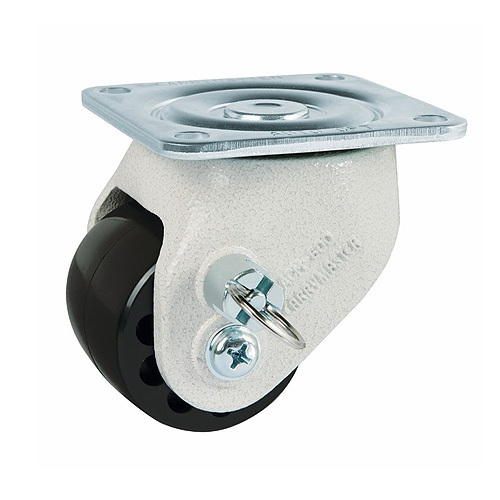Exploring Different Types of Industrial Wheels
Industrial caster wheels make it easier to move heavy equipment in industrial settings. They eliminate the need to manually carry or push machinery across surfaces, reducing the risk of workplace injuries and minimizing storage space demands.
Industrial casters come in various shapes, sizes, and materials to suit various industry needs.
Cast Iron
Typically made from gray iron, these wheels are abrasion-resistant and require minimal effort to start rolling. They can also hold high capacities over long distances and resist impact loads. They can rust in water, so this should be considered when choosing this wheel for harsh environments.
These wheels are machined with v-grooves to direct the weight of the load onto each face of the inverted-angle iron track. This method of tracking allows for a smoother operation and more precise control. The v-grooves also prevent the wheels from running off track, which can be dangerous and cause damage to equipment. These wheels are also an excellent choice for lumber carts to ensure optimal stability during transport. These wheels can be forged or cast.
Polyurethane
Polyurethane is a highly durable wheel material that resists oil, water, and most solvents. Its chemical composition allows for various additives, including fillers, plasticizers, stabilizers, antistatic agents, degassing aids, and flame retardants.
Polyurethane wheels create less resistance than rubber wheels, which can create a lot of friction and force to move equipment. This reduces operator fatigue and equipment downtime caused by constantly repositioning equipment or retraining operators on operating machinery.
Various custom wheels are made from polyurethane, including a resilient tread molded around a non-marking core and quieter than other industrial wheels. This is ideal for factories that want to lower noise levels and improve floor protection. The urethane can also absorb bumps and shocks, which helps to keep workers safe.
Pneumatic
Like automobile tires, these industrial wheels utilize air pressure to absorb shock and allow easy maneuvering on uneven surfaces. They are often used on heavy carts and other equipment that must be able to roll over rough ground.
Pneumatic wheels offer many advantages for equipment such as hospitals, hotels, and electronic labs. They have a soft rubber tread that reduces loud noises and protects floors from scratching or other damage. They are also much easier on surfaces compared to iron and steel casters.
However, the softer tread can generate more friction with various surfaces and require more initial force to get moving. This can increase the total cost of ownership versus other wheel options. You can also replace the air in pneumatic casters with foam to eliminate the risk of flat tires, but this can also reduce the cushioning and performance characteristics of the wheel.
Rubber
Thermoplastic rubber, polypropylene, phenolic, and solid nylon wheels fall into the synthetic category. These wheels are incredibly durable and resistant to grease, oil, and harsh chemicals. They have a quiet movement and offer excellent floor protection. These casters are perfect for loads over 250 lbs.
Soft rubber casters feature a molded soft rubber tread bonded to a hardcore. These wheels are great for light average loads and occasional full-capacity loads. They are easy to roll and can be used on most floor surfaces. They also resist abrasion, cracking, and chipping.
Neoprene rubber casters are ideal for wet environments and food service equipment. They also resist oils, greases, mild chemicals, and extreme temperatures. These casters are quiet, easy to roll, and shock absorbent.
Steel
Industrial caster wheels are one of the primary tools used in material handling applications. They are used to move carts and other types of mobile equipment to help make the job of a worker easier by minimizing the amount of manual effort needed to maneuver the item.
Steel industrial wheels are durable and can withstand heavy loads and rugged environments. They are available in various sizes with either a smooth or treaded design. Smooth wheels are ideal for indoor use on even surfaces, and treaded wheels offer better traction when moving across uneven or slippery surfaces.
These wheels can also withstand corrosive situations, washdowns, and high temperatures. They are excellent for kilns, commercial wood-drying carts, and other industrial rail carts.



